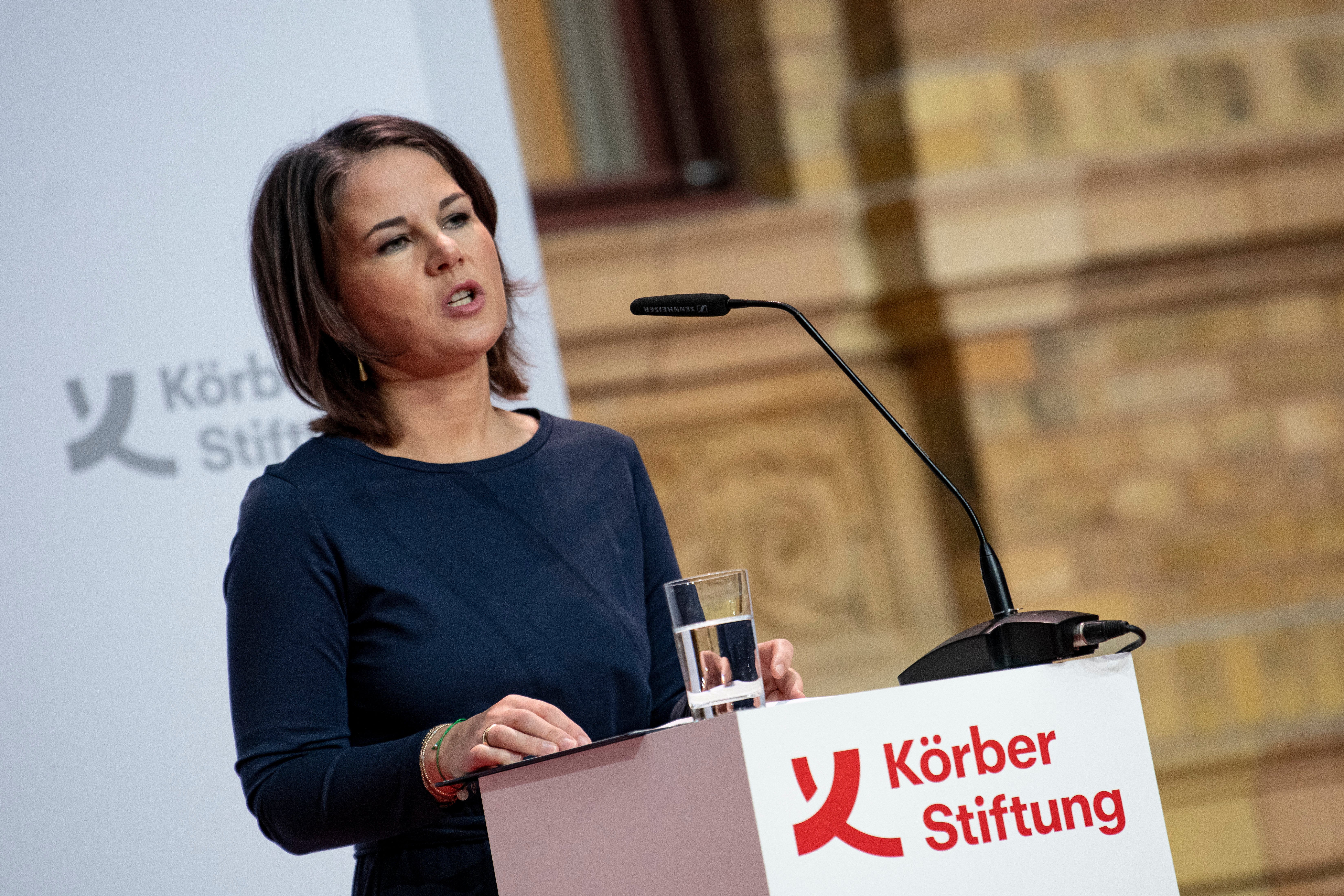German foreign minister urges caution in China relationship
The German foreign minister says her country must avoid repeating with China the mistakes it made in its relationship with Russia over recent years

Your support helps us to tell the story
From reproductive rights to climate change to Big Tech, The Independent is on the ground when the story is developing. Whether it's investigating the financials of Elon Musk's pro-Trump PAC or producing our latest documentary, 'The A Word', which shines a light on the American women fighting for reproductive rights, we know how important it is to parse out the facts from the messaging.
At such a critical moment in US history, we need reporters on the ground. Your donation allows us to keep sending journalists to speak to both sides of the story.
The Independent is trusted by Americans across the entire political spectrum. And unlike many other quality news outlets, we choose not to lock Americans out of our reporting and analysis with paywalls. We believe quality journalism should be available to everyone, paid for by those who can afford it.
Your support makes all the difference.Germany must avoid repeating with China the mistakes that it made in its relationship with Russia over recent years, the German foreign minister said Tuesday.
Annalena Baerbock said Germany must face up to a “competition of systems" between countries that believe in international law and cooperation and authoritarian regimes.
“We must first of all learn from the mistakes of our Russia policy of recent decades,” Baerbock said at a foreign policy forum in Berlin organized by the Koerber Foundation think tank. “I say very clearly that one-sided economic dependence exposes us to political blackmail.”
“As far as Russia is concerned, that's spilt milk now,” Baerbock said, acknowledging that Germany ignored warnings from eastern European partners about its dependence on Russian energy. “We must ensure that we don't make such a mistake again, and that means that we will have to take account of this more strongly in our policy toward China.”
She noted that a “national security strategy” being drawn up by Chancellor Olaf Scholz's government will include a German China strategy, which will be embedded in a European Union strategy.
German governments over the past two decades strengthened economic links with Russia — particularly in the energy sector, despite distaste in eastern Europe for gas pipeline projects linking Russia directly with Germany. Berlin has scrambled to find replacement gas supplies as relations nosedived following Russia's invasion of Ukraine; Russia hasn't delivered gas to Germany since the end of August.
German companies have invested heavily in China in recent years, and China is one of Germany's biggest trading partners.
Scholz's government has sounded a more cautious note toward Beijing than its predecessors since it took office in December. Scholz made his first Asian visit to Japan, rather than China. And Baerbock, whose Green party was in opposition for 16 years until last year, has sounded tougher on the issue.
Last week, Scholz told a conference of Germany's important machinery industry that globalization was a success and “decoupling is the wrong answer.”
“We don't need to decouple ourselves from a few countries; we must continue to do business with individual countries — and I say explicitly, also business with China,” he said. “But we must ensure that we also trade with the rest of the world and take into consideration the rest of Asia, Africa and South America.”